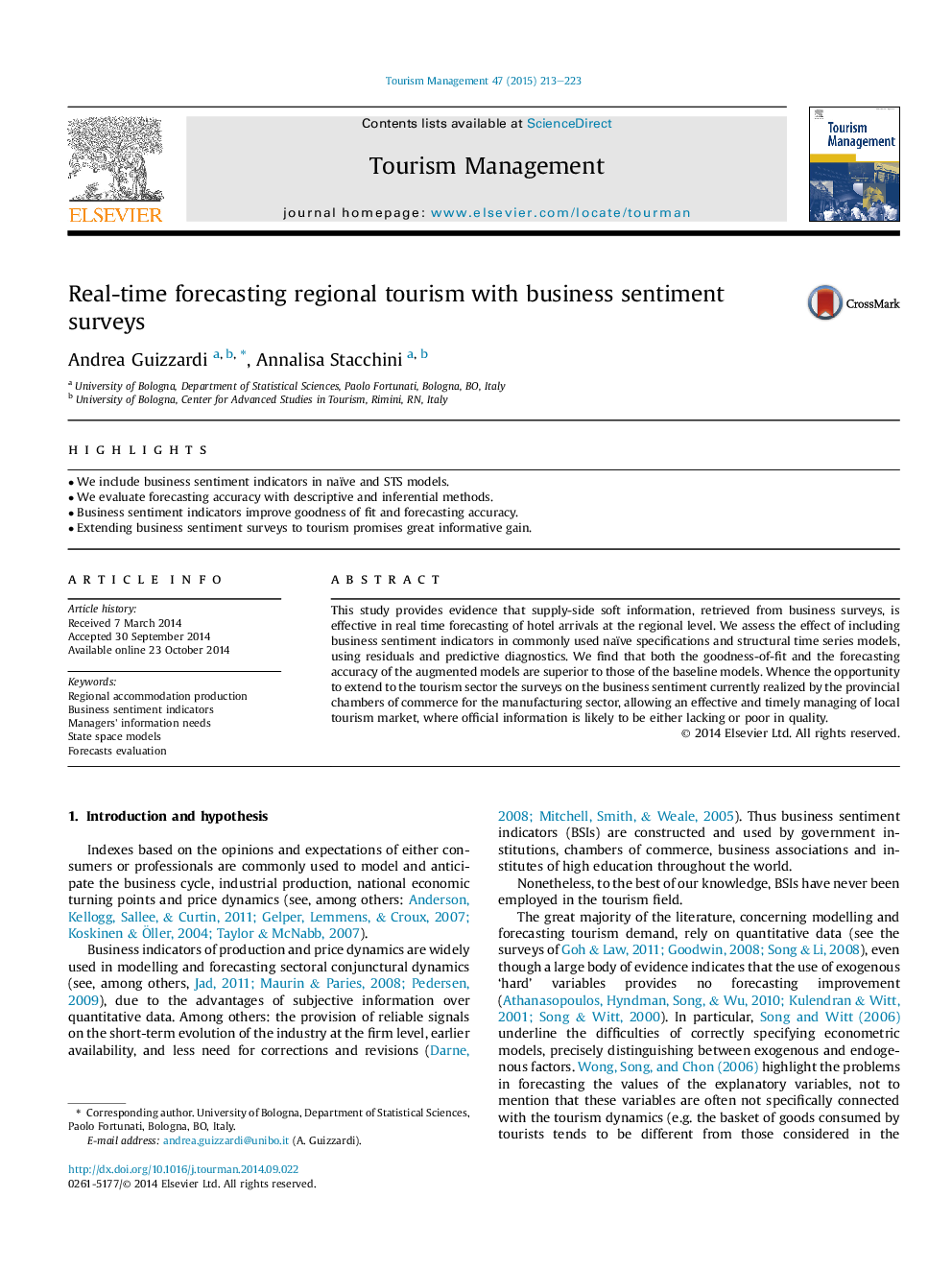| Article ID | Journal | Published Year | Pages | File Type |
|---|---|---|---|---|
| 1011974 | Tourism Management | 2015 | 11 Pages |
•We include business sentiment indicators in naïve and STS models.•We evaluate forecasting accuracy with descriptive and inferential methods.•Business sentiment indicators improve goodness of fit and forecasting accuracy.•Extending business sentiment surveys to tourism promises great informative gain.
This study provides evidence that supply-side soft information, retrieved from business surveys, is effective in real time forecasting of hotel arrivals at the regional level. We assess the effect of including business sentiment indicators in commonly used naïve specifications and structural time series models, using residuals and predictive diagnostics. We find that both the goodness-of-fit and the forecasting accuracy of the augmented models are superior to those of the baseline models. Whence the opportunity to extend to the tourism sector the surveys on the business sentiment currently realized by the provincial chambers of commerce for the manufacturing sector, allowing an effective and timely managing of local tourism market, where official information is likely to be either lacking or poor in quality.
